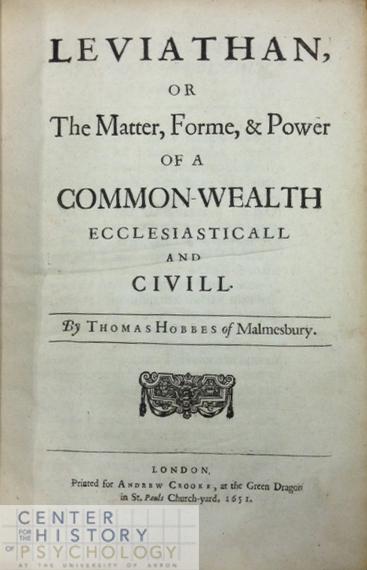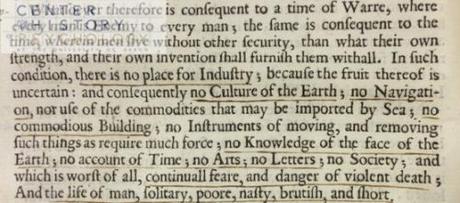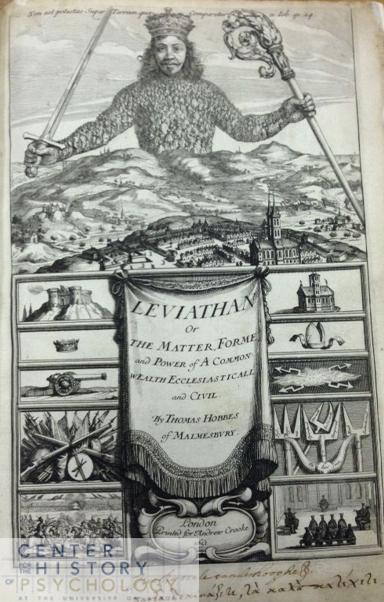-Contributed by Adam Beckler.
We are now receiving Book of the Month contributions from students and interns! Adam Beckler is an undergraduate student assistant with Reference & Digital Projects. He is a Junior at the University of Akron studying Political Science and History.
BOOK: Leviathan, or the matter, forme, & power of a common-wealth ecclesiasticall and civill by Thomas Hobbes (1651)
What makes authority possible?
This is the question that Thomas Hobbes set out to answer when he wrote Leviathan, or the Matter, Forme, & Power of a Common Wealth Ecclesiastical and Civill. Having lived through the English Civil War, Hobbes did not write in a political vacuum. England’s national struggle over who had the right to rule resulted in the beheading of King Charles I and served as the impetus for the publication of Leviathan. The Center for the History of Psychology has a rare, genuine first issue of Leviathan, published in London in 1651. The authenticity of this first issue can be told by the woodcut ornament on the title page, which consists of a winged head and pots of flowers.

Leviathan Title Page
Leviathan is one of the most influential works in the history of political philosophy. Hobbes imagined a hypothetical state of nature in which there is relative equality among mankind. Hobbes took a materialistic view of human psychology. He believed that human beings are mechanical, operating according to scientific laws of physics and predictable desires. If equal men desire something which cannot be mutually enjoyed, these men will become enemies. Without the presence of a power higher than the individual, nature is a war of “every man, against every man.” In arguably the most famous passage of Leviathan, Hobbes describes man’s life in nature as “solitary, poor, nasty, brutish, and short.”

“solitary, poor, nasty, brutish, and short”
Hobbes suggests that to avoid a war of all against all, men will form a contract with each other to establish a civil society. This “social contract” vests authority in a powerful sovereign, or “Leviathan.”

The Leviathan
According to Hobbes, men give up freedom to commit violence in order to gain protection from violence. This is the nature of political authority.
As a student of political science and history, I have studied Leviathan in multiple classes. That it is still studied on its own merits and not as a historical document is a testament to the intellectual legacy of Thomas Hobbes. Leviathan is significant to me because it represents an early attempt to answer fundamental questions about mankind and the civil society that we take for granted. While the answers will not satisfy everyone, simply thinking about these questions can make us collectively better off.
